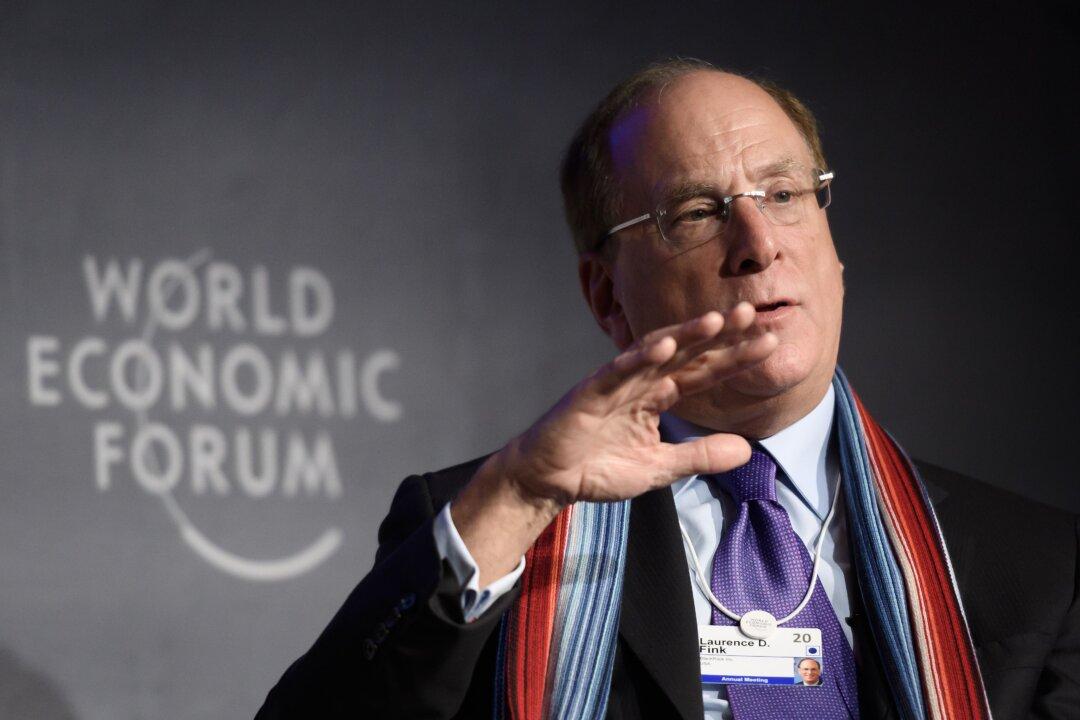Two of Wall Street’s top CEOs have differing views on inflation, but both diverge from the Federal Reserve’s predictions that price increases are transitory and will fade once supply shocks and other pressures ease.
Larry Fink, chairman and CEO of BlackRock, the world’s largest asset manager, is convinced that inflation isn’t temporary, as he believes deglobalization will lead to “systematically more inflation” in the future.





